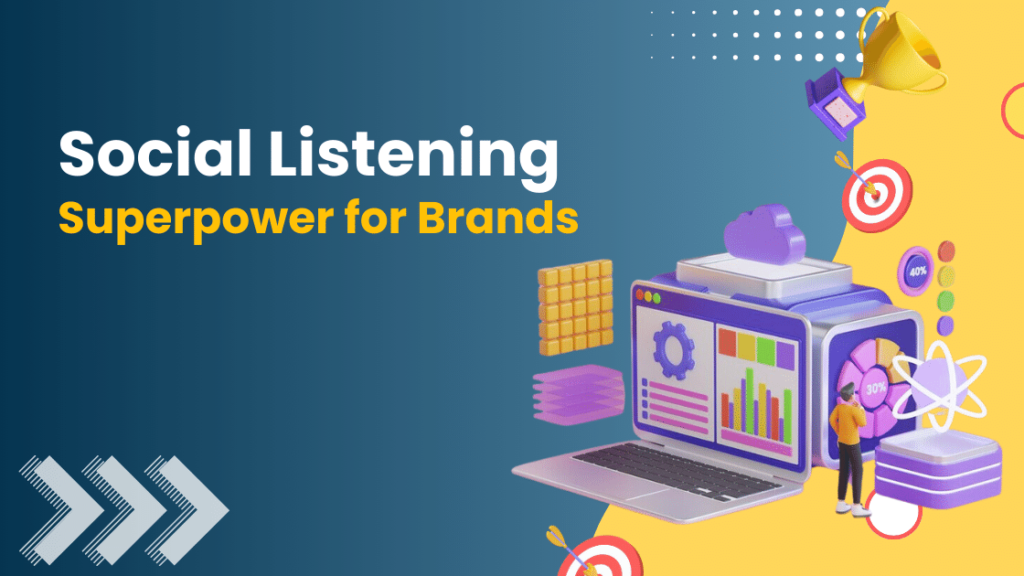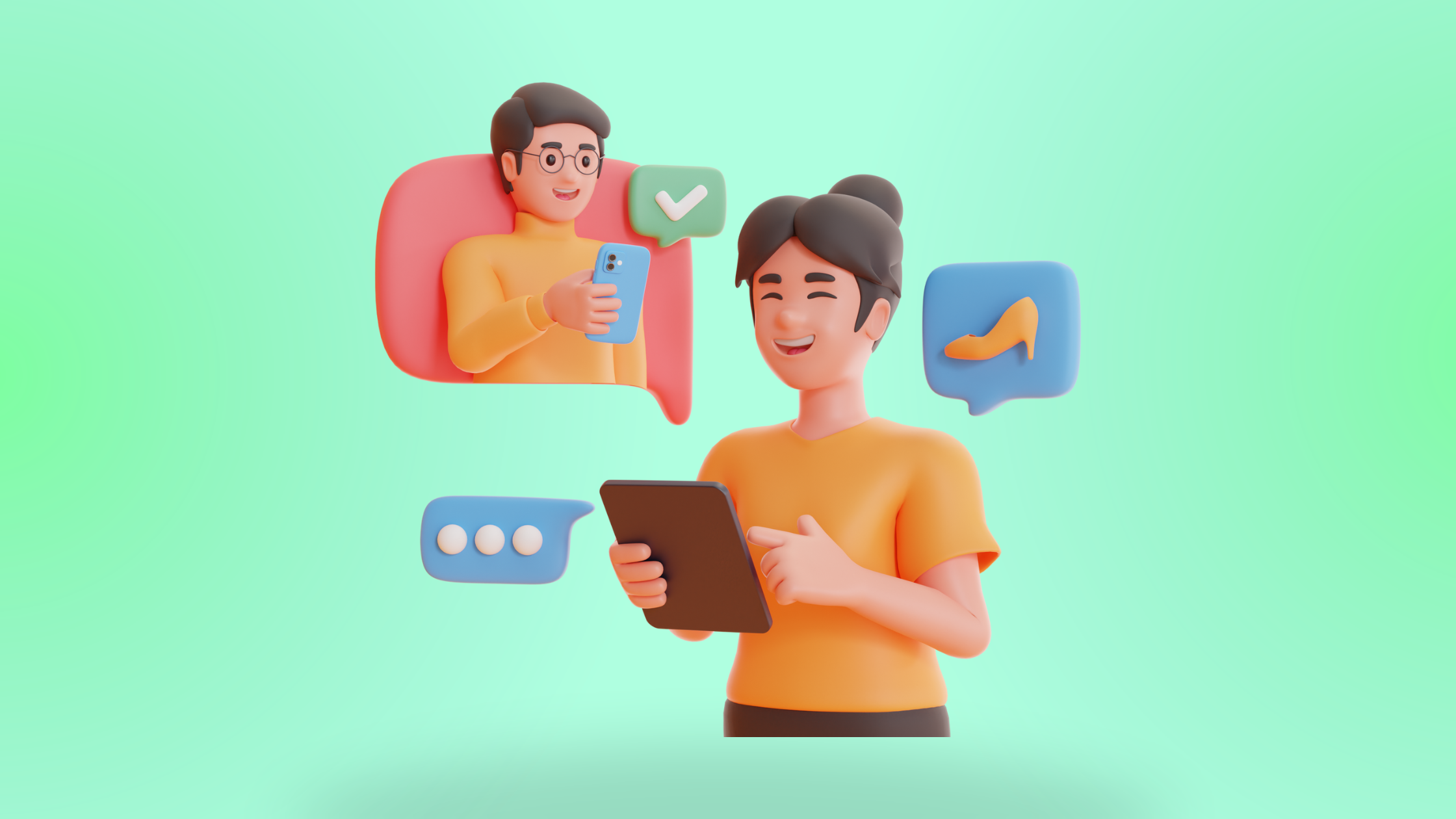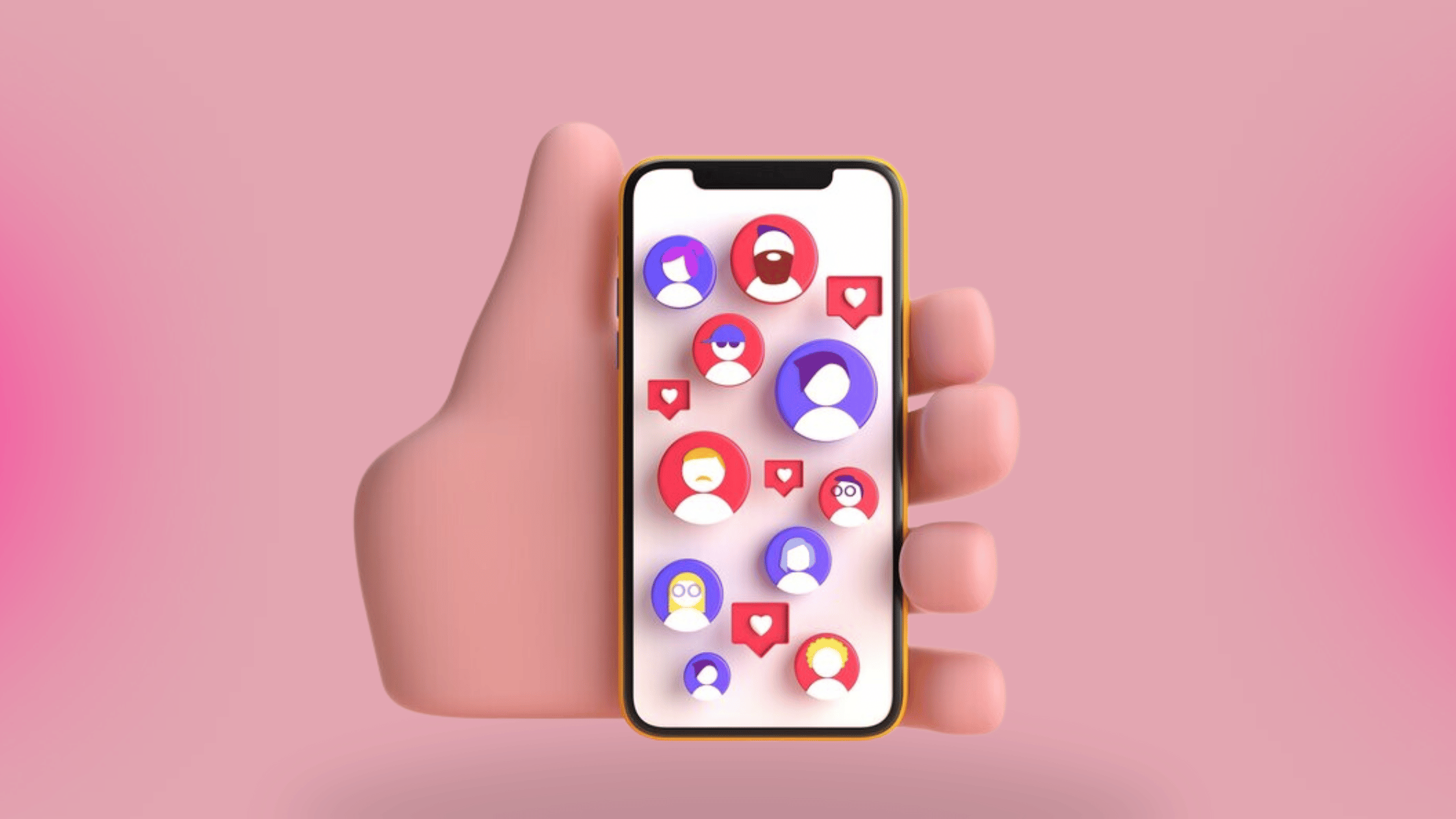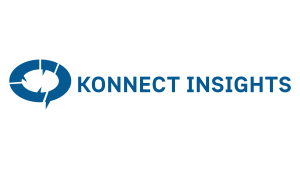In the realm of social media phenomena, one notable event involved Carter Wilkerson’s quest for free chicken nuggets from Wendy’s, triggering a viral sensation with his tweet seeking 18 million retweets. Although falling short, he garnered an impressive 3.5 million retweets, showcasing the power of social media engagement. For brands, this presents a massive opportunity to gain valuable insights into customer preferences, sentiments, and behaviors. This is where social listening comes into play.
Social listening refers to the process of monitoring online conversations across various social media platforms to understand what people are saying about a brand, industry, or specific topic. By analyzing these conversations, brands can gain actionable insights that inform their marketing strategies and decision-making processes.
To put it simply, social listening allows brands to eavesdrop on the conversations happening on social media platforms to better understand their audience and augment their business strategies accordingly.
Also Read : Mastering Social Listening: Avoiding Common Pitfalls For Brand Success
How Does Social Listening Work?
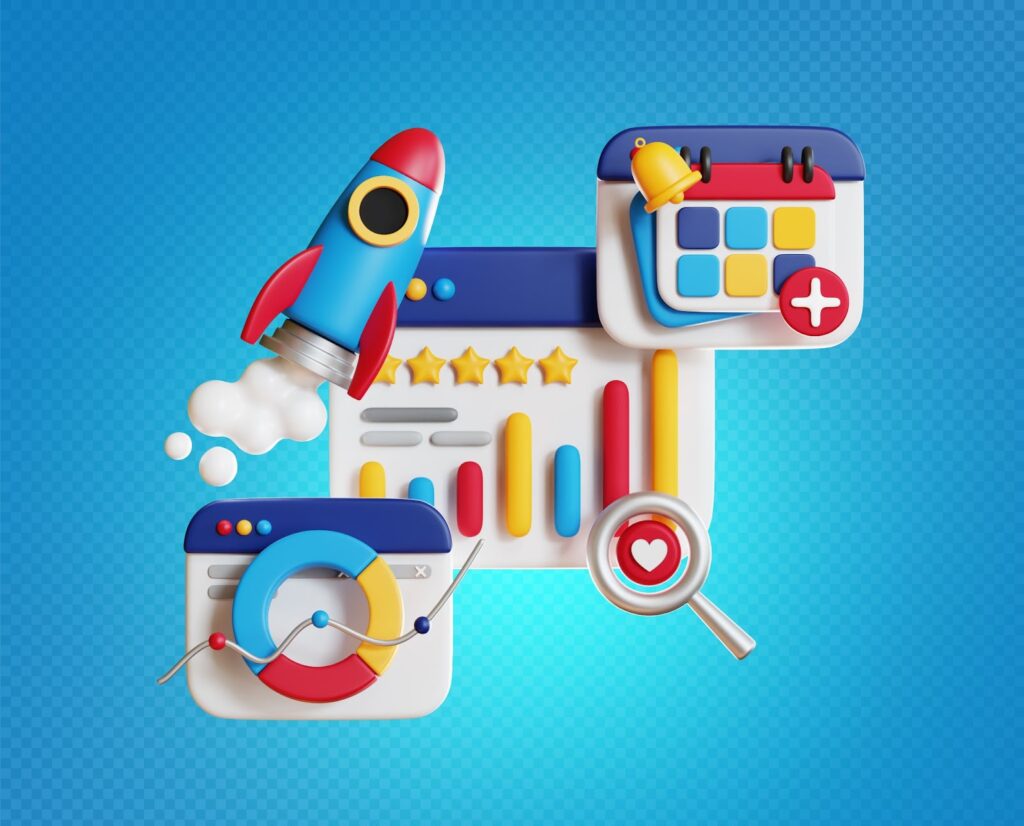
Social listening involves utilizing various tools and techniques to monitor online conversations related to a brand or industry. These conversations can take place in the form of tweets, Facebook posts, Instagram comments, blog articles, review sites, forums, and more.
To begin with social listening, brands need to set up searches using relevant keywords and hashtags related to their industry or brand. This helps them track mentions of these keywords across various social media channels. Additionally, brands can also track mentions of their competitors’ keywords to gain insights into how they are being perceived in comparison.
Once these searches are set up, sophisticated algorithms analyze the vast amounts of data collected from these conversations. These algorithms utilize natural language processing and machine learning techniques to identify sentiments associated with each mention (positive, negative, or neutral), as well as categorize mentions based on topics or themes.
Why Does Social Listening Matter for Brands?
Social listening matters for brands because it offers a wealth of benefits that can positively impact various aspects of their business. Let’s dive into some of the key reasons why social listening should be an integral part of any brand’s marketing strategy:
1. Understanding Customer Sentiments:
Social listening provides brands with a direct line to their customers’ thoughts and opinions. By monitoring conversations, brands can gain insights into how their products or services are perceived, what issues customers are facing, and what they love about the brand. This information helps brands identify areas for improvement and tailor their offerings to meet customer expectations.
2. Identifying Influencers and Brand Advocates:
Social listening allows brands to identify influential individuals who are talking positively about their brand or industry. These influencers can be leveraged to amplify brand messaging and reach new audiences. Similarly, identifying influencers and brand advocates enables brands to nurture these relationships and harness the power of word-of-mouth marketing.
3. Spotting Emerging Trends:
Social media is often where trends emerge before they become mainstream. By actively monitoring conversations, brands can spot emerging trends in real-time and capitalize on them before their competitors do. This gives them a competitive edge and keeps them ahead of the curve.
4. Gaining Competitive Intelligence:
Social listening offers valuable insights into how competitors are perceived by customers. By closely monitoring conversations around competitors’ products or services, brands can identify gaps in the market that they can fill or areas where they can differentiate themselves. This intelligence helps inform competitive strategies and stay one step ahead in a crowded marketplace.
5. Monitoring Brand Reputation:
In today’s interconnected world, a brand’s reputation is everything. Social listening allows brands to proactively monitor mentions of their brand name, products, or services to address any negative sentiment or potential crisis promptly. By being aware of what people are saying about them in real time, brands can take proactive steps to manage their online reputation effectively.
6. Improving Customer Service:
Social media has become a primary channel for customer engagement and support. By actively listening to customer conversations on social media, brands can provide timely responses to queries, address concerns, and offer personalized assistance. This improves the overall customer experience and fosters brand loyalty.
7. Enhancing Marketing Campaigns:
Social listening provides invaluable insights into what content resonates with the target audience and how it is being received. By analyzing the sentiment and engagement levels of specific campaigns or content pieces, brands can optimize their marketing efforts and create more impactful campaigns in the future.
Do you know why social listening and customer insights are important for your brand.
How Does Social Listening Impact a Brand’s Growth? – The Power of Social Listening
Now that we understand what social listening is and why it matters for brands, let’s delve into how it can directly impact a brand’s growth. Below are seven key ways in which social listening can empower brands to achieve sustainable growth:

1. Higher Engagement Rates
By monitoring online conversations through social listening, brands can gain valuable insights into what content resonates with their audience. This enables them to create more engaging and relevant content that drives higher engagement rates across social media channels.
For example, a cosmetics brand might notice through social listening that its audience is particularly interested in skincare tips and tutorials. Armed with this knowledge, they could create more content in this area, resulting in increased engagement from their target audience.
2. Enhanced Brand Reputation
Social listening allows brands to stay informed about what people are saying about them. This awareness enables them to promptly address any negative sentiment or potential crises before they escalate.
For instance, if a brand receives negative feedback about a product on Twitter, it can use social listening tools to identify and respond to the issue swiftly. By addressing concerns publicly and providing solutions, brands demonstrate their commitment to customer satisfaction, thus enhancing their reputation as a responsive and customer-centric organization.
3. Effective Competitor Tracking
Social listening not only provides insights into a brand’s performance but also enables them to monitor their competitors. By tracking conversations related to competitors’ products, services, or campaigns, brands can gain a competitive advantage by identifying areas of improvement or differentiation.
For instance, an e-commerce company might notice through social listening that customers are complaining about long shipping times with a competitor. This presents an opportunity for the brand to highlight its own fast and reliable shipping service in its marketing campaigns, thus attracting more customers.
4. Improved Customer Service
Social media platforms have become go-to channels for customer support and engagement. Social listening allows brands to identify customer queries or concerns in real-time and respond promptly, leading to improved customer service.
For example, if a customer tweets about a technical issue they are facing with a product, the brand can proactively reach out with troubleshooting steps or offer personalized assistance. This level of responsiveness not only resolves the issue but also demonstrates the brand’s commitment to customer satisfaction.
5. Boon for Product Development
Social listening provides brands with direct access to valuable customer feedback that can inform product development initiatives. By analyzing conversations around their products or industry, brands can identify pain points, unmet needs, or emerging trends that can guide the development of new products or improve existing ones.
For instance, an electronics company may discover through social listening that customers are frequently complaining about poor battery life in their smartphones. Armed with this insight, the brand could prioritize improving battery performance in its next product release.
6. Risk Mitigation or Crisis Prevention
In today’s hyper-connected world, crises can escalate rapidly on social media platforms. Social listening enables brands to proactively identify potential issues before they blow up into full-blown crises.
For example, if there is a recall of a product due to safety concerns, social listening tools allow brands to detect mentions of the recall and take immediate action to inform customers about the issue and provide guidance on the next steps. By being proactive, brands can mitigate the negative impact of such incidents on their reputation and customer trust.
7. Effective Targeting
Social listening provides insights into audience demographics, interests, and behaviors that can inform targeted marketing campaigns. By understanding their audience better, brands can create highly personalized campaigns that resonate with specific segments of their target market.
For instance, a fitness apparel brand could identify through social listening that its audience is particularly interested in yoga. Armed with this information, the brand could create tailored content and advertisements focused on yoga-related products to effectively target this specific segment.
By harnessing the power of social listening, brands can unlock valuable insights that drive growth across various aspects of their business. From improving customer service to optimizing marketing campaigns and developing new products, social listening empowers brands to make data-driven decisions that keep them ahead of the competition.
Also Read : The Psychology Of Online Reputation: How Perception Influences Digital Success
FAQs
1. How does social listening help in product development?
Social listening helps in product development by providing direct access to customer feedback and insights. By monitoring conversations around their products or industry, brands can identify pain points, unmet needs, and emerging trends. This information guides the development of new products or improvements to existing ones.
2. What is the importance of social media listening in crisis management?
Social media listening plays a crucial role in crisis management as it enables brands to proactively identify potential issues before they escalate into full-blown crises. By monitoring mentions related to their brand or industry in real-time, brands can respond promptly to address concerns, provide guidance, and mitigate the negative impact on their reputation.
You can also prevent crisis using social listening.
3. What are the best listening tools for social media?
Several powerful social media listening tools are available in the market today. Some popular options include Hootsuite Insights, Brandwatch Consumer Research, Sprout Social Listening Tools, Talkwalker Social Listening Platform, and Mention.
Also Read: Best Social Listening Tools
4. What is the power of social listening in a brand’s growth?
The power of social listening lies in its ability to provide brands with valuable insights into customer preferences, sentiments, and behaviors. By leveraging these insights, brands can create more engaging content, enhance their reputation, gain competitive intelligence, improve customer service, drive product development, mitigate risks, and effectively target their marketing campaigns. These factors collectively contribute to a brand’s growth and success.
Also Read : Social Listening Faqs
Conclusion
Social listening is a potent tool that enables brands to tap into the vast amount of conversations happening on social media platforms. By actively monitoring these conversations and analyzing the data collected, brands can gain actionable insights that inform their marketing strategies, enhance customer experiences, and drive business growth. From higher engagement rates to improved customer service and effective competitor tracking, social listening empowers brands to stay ahead of the curve and make data-driven decisions that positively impact their bottom line. As social media continues to evolve and play a significant role in our lives, harnessing the power of social listening will be key for brands looking to thrive in today’s digitally connected world.
